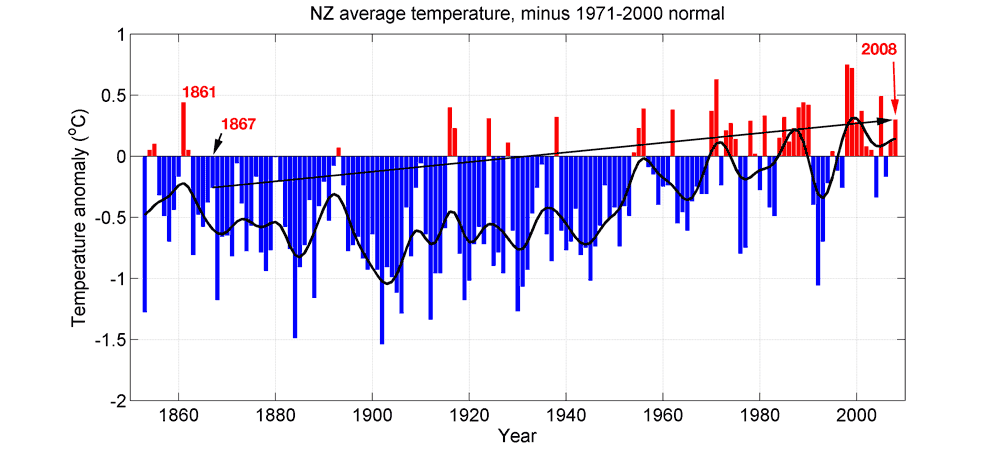We can’t successfully tackle climate change without changes to the corporate regime which has been in place in America since the Reagan presidency. That’s the underlying message of Charles Derber in his latest book Greed to Green: Solving Global Warming and Remaking the Economy. It’s a message he delivers with directness in a book much more readable than I expected from an academic sociologist.
He accepts the position of scientists like Hansen and others who point to the ominous dangers of tipping points in climate and conclude that we are already above a safe level of atmospheric carbon dioxide, which they consider no more than 350 parts per million. It’s not a happy acceptance. “No sane person would wish it to be the scientific truth.” He recounts the terrible difficulty he had, after realising with despair the seriousness of climate change, in dealing emotionally with the prospect of mass, collective death – “more difficult than dealing with my own personal death”.
The only good news he discerns is that the scientific truth may be spreading and leading to a tipping point in the world’s social and political awareness. But any realisation of the scientific truth by a majority of the community has not passed beyond cognition to what he calls gut acceptance. He acknowledges the difficulties of such acceptance, drawing on his own experience. The reality is so serious it intensifies the psychological pressure to deny.
Nevertheless he identifies some factors that make gut acceptance of climate change tolerable: we have the power to stop or mitigate it, tackling it can also contribute to solving more immediate social problems, and there are benefits in the green lifestyle. Meanwhile the denial industry has been powerfully influential, though he notes that it is now moving from Stage 1 denial, that global warming is a hoax, to Stage 2, that human-caused global warming exists but must be solved gradually with a slow phasing out of fossil fuels. “If the new denial succeeds, civilisation will be destroyed in the name of green incremental reform.”
In sectors of America greening is partly under way thanks to the actions of long-term thinkers. However the frontal long-term attack is insufficient to gather wide enough public support. It needs to be accompanied by a second path – what he calls a “time-tricking” strategy that seeks to solve the long-term crisis by hitching a ride on the back of short term issues worrying the majority of Americans. He sees this as a key strategy for the Obama administration – and one which Obama himself understands and is already employing.
But there has to be a systemic shift in power. A change from the current corporate regime, in place since the Reagan presidency, is essential if climate change is to be tackled. Unrestrained capitalism creates climate change. It externalises environmental and social costs. It is destructive of the commons. Derber urges a new green regime, which he describes as the best blend of different economic models with surviving corporations restructured and subject to greater public accountability.
Socialism by stealth I can hear the denialists proclaiming. Certainly Derber associates himself with the welfare of working people and sees the necessity for organised labour to play a significant part in a green regime. He laments the way American jobs have been degraded under the corporate regime, many outsourced and others casualised. One of the important attractions of a green regime is that it will be rich in secure jobs, many of them associated with renewable energy. He also proposes pragmatic temporary nationalisation of some banks and of giant dysfunctional oil and coal companies. But not on the basis of any socialist ideology. The banks have already required enormous injections of public money to keep them afloat. The fossil fuel energy giants such as Exxon are already effectively on the public dole.
Essentially Derber is urging a transformation of America away from an increasingly unstable economy based on ever-growing consumption of unnecessary goods and ever-expanding suburban housing. Coerced consumerism he calls it, which has locked Americans into a pattern of insecurity and overwork. In its place he urges an economy solidly based on the production of green energy and its efficient use. Those jobs stay local and secure. And there’s plenty of room for market-inspired innovation within such an economy. The transformation is necessary to fight climate change, and at the same time it works to alleviate America’s current social justice crises.
Derber’s book is focused on the US “because a green revolution here will be a shot heard around the world.” In discussing the ways in which the green revolution becomes global he points to “a new posthegemonic order of green security and globalisation”. He’s firm on the need for the West to take responsibility for the poverty and environmental degradation it has foisted on the rest of the world. The West must finance massive aid and technology transfers that allow the remaining nations to develop a green strategy without giving up their rights to achieve a decent standard of life. He offers several suggestions for finding the money for this purpose: cut the bloated American military budget; implement a green Tobin tax on currency movements; cancel dirty debt in exchange for green development; create a new “commons” of clean energy technology. The importance of a global carbon tax is explained. An interesting take on going local, not to abolish globalisation but to reduce its space, sees Derber use the term glocalism, favouring local economies wherever possible and reserving global production only for those areas where local production cannot work.
Derber is impressed by much that Obama has said about climate change and much that he has set in place. He particularly welcomes the respect he has accorded to science and scientists who understand the reality of global warming. But it would be a mistake to think he won’t need a big push from social movements. Derber himself is a lifelong social activist. He considers that today’s social and environmental movements are the best last hope for solving global warming on the urgent time scale required. It has always been social movements which have awakened America to urgent systemic crises such as slavery, women’s disenfranchisement, or the capitalist exploitation of workers. Derber discusses the ways in which movements can face up to the existential truth of the emergency of climate change and take swift radical action to mobilize the largest number of people including the president.
Derber is a lively writer. He has a go at a short Greek drama in the course of his book, with the Oracle reminding foolish people that time is running out. He also provides the text of several fireside chats for Obama to have with the American people, in the fashion of Franklin Roosevelt. In an engaging short personal account he answers any who wonder whether he walks his talk – a mixed case, he reports, not a couch potato but not a hero-activist either. His talk made good sense to me, whether he walks it assiduously or not.


 An
An  What was it Richard Treadgold and Rodney Hide were
What was it Richard Treadgold and Rodney Hide were  How far can a Minister of the Crown go in misrepresenting the facts of a matter before he is guilty of misleading the House? That’s not an easy question to answer, but any sensible reading of Rodney Hide’s
How far can a Minister of the Crown go in misrepresenting the facts of a matter before he is guilty of misleading the House? That’s not an easy question to answer, but any sensible reading of Rodney Hide’s  Jonathan Leake at the UK
Jonathan Leake at the UK